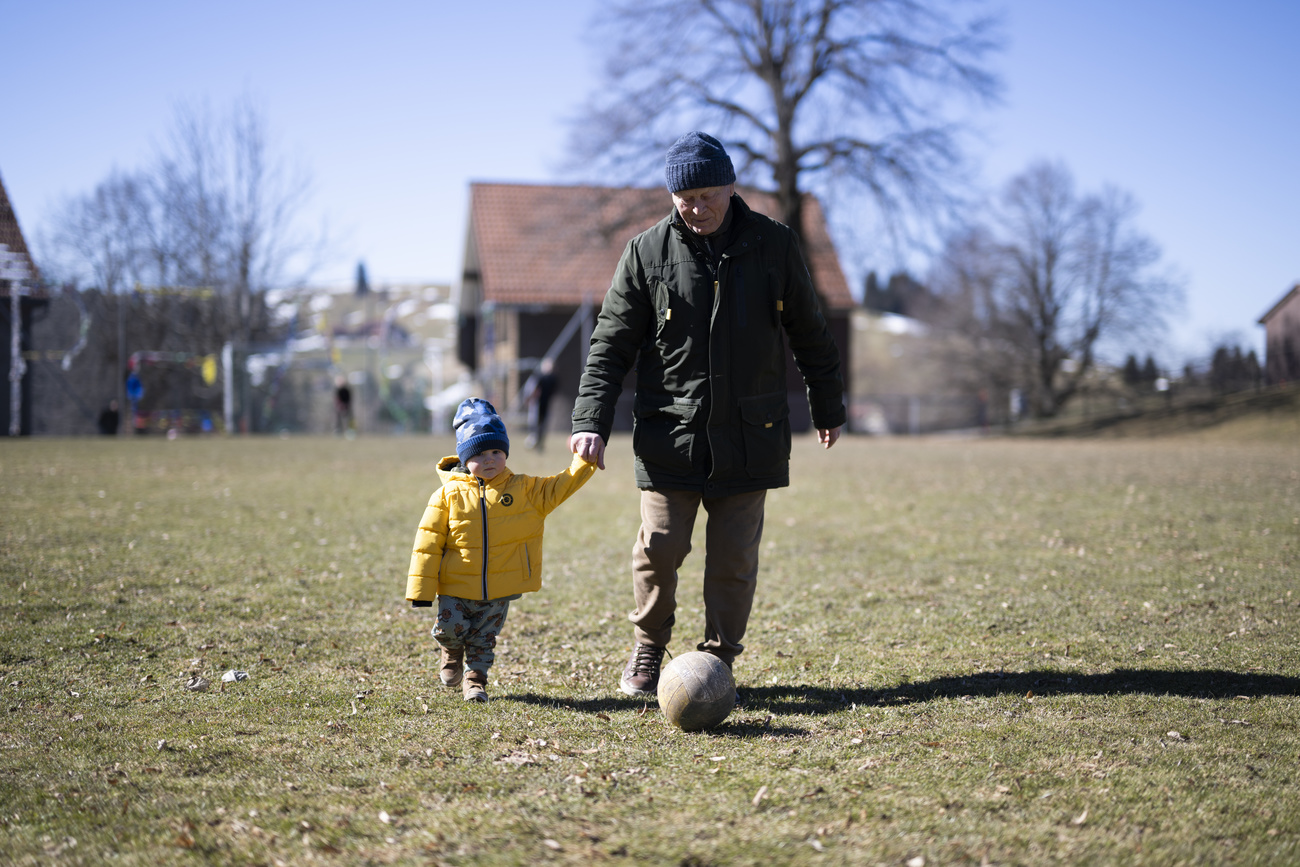
Swiss tighten rules on social assistance for Ukrainian refugees

Authorities have announced that they will consider the financial situation of Ukrainian refugees with Status S when evaluating requests for social assistance. This brings requirements in line with those for other temporarily admitted persons in Switzerland.
Some 60,000 people from Ukraine have arrived in Switzerland and received S protection status, which allows them to receive social assistance as well as work in the country. Up to now, the decision of whether to provide such benefits hasn’t considered the person’s income or assets. This contrasts to how temporarily admitted people from other countries have been treated.

More
Switzerland triggers unprecedented special status for Ukrainian refugees
“We noticed that there was a certain amount of public criticism of the different treatment of those temporarily admitted and those in need of protection,” Gaby Szöllösy, secretary general of the cantonal conference of social directors, told Swiss public television SRF.External link
On Thursday, cantonal authorities responsible for social benefits agreed to tighten rules so that income and assets are considered regardless of whether they are obtained in Ukraine or in Switzerland.
This means that if people with status S withdraw funds from bank accounts or obtain other assets in Ukraine, these are to be considered in the assessment of income. The only exception is a car as this is needed to return home, says Szöllösy. New recommendations on how to deal with vehicles and other assets such as jewelry are expected to be available in late autumn.

In compliance with the JTI standards
More: SWI swissinfo.ch certified by the Journalism Trust Initiative






























You can find an overview of ongoing debates with our journalists here . Please join us!
If you want to start a conversation about a topic raised in this article or want to report factual errors, email us at english@swissinfo.ch.